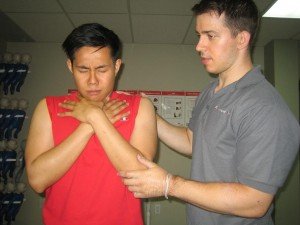
Seattle CPR in Washington is one of the best places to get cardiopulmonary resuscitation. We have a large selection of courses to choose from, with basic and advanced training available. We also have a program for the public – laypersons who do not work in healthcare. The rest of our programs are only for HCPs (healthcare providers). We also offer re-certification for rescuers whose credentials are nearing expiry.
CPR: A confidence problem?
Chest compressions are one of the simplest lifesaving skills you can learn. Even a simple instructional video on how to correctly give chest compressions can teach a person how to perform hands-only CPR. Despite videos being available all over the internet and training providers offering courses all over the US, people are still not confident when faced with an actual situation. Only 32 percent of cardiac arrest cases out of the hospital receive CPR from bystanders.
These statistics are staggering because giving CPR to a victim within the first few minutes of collapse can dramatically raise their chances of survival by two or three times. Even if you don’t work in healthcare, a simple four-hour basic CPR class is enough. Basic HCP courses are just a little longer, taking four and a half hours to complete.
Available CPR classes
Our classes are divided into two categories: one for basic CPR training and the other for advanced CPR training. Basic courses fall under the concept of Basic Life Support while advanced courses fall under the concept of Advanced Life Support.
Basic courses cover two basic skills: chest compressions and rescue breaths. When CPR is given, it is always at a 30:2 compression:ventilation rescue. CPR is started with 30 compressions followed by two rescue breaths. At least 100 compressions should be given in a minute.
- Heartsaver CPR is a basic class that teaches students about one-person rescue, or giving CPR when you’re alone. It has two classes under it, the four-hour class for the public and the four and a half-hour class for healthcare providers.
- Basic Life Support for healthcare providers is also a basic class but tailored only for healthcare providers. It teach both one and two-person rescue, as well as the latest guidelines for Basic Life Support (from the American Heart Association).
Advanced courses are tailored exclusively for allied health professionals, particularly those who work in the hospital or emergency room. The courses teach medical management of cardiac arrest, with a program for adult cases and a program for pediatric cases. Medical management such as medication administration and diagnostic examinations can only be administered by HCPs, so both ACLS and PALS courses can only be taken by HCPs.
- Advanced Cardiac Life Support (ACLS) is a two-day course that runs for 16 hours in total. It teaches the medical management of adult cases of cardiac arrest.
- Pediatric Advanced Life Support (PALS) is also a two-day course, but runs shorter for 14 hours. It teaches the medical management of pediatric cases. The term pediatric actually refers to infants, toddlers, and younger children.
